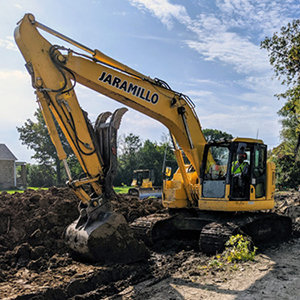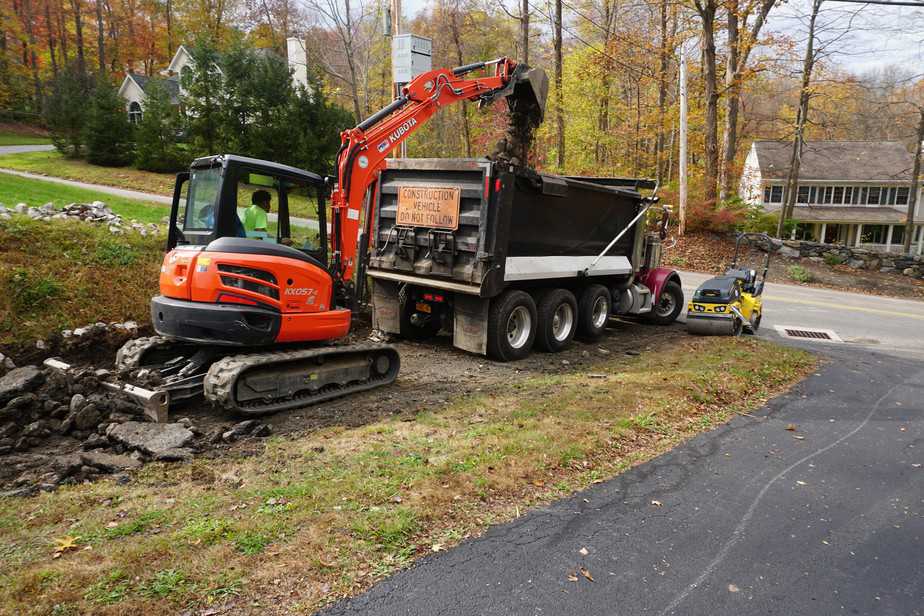Industrial Lancaster Trenching - Trenching Services for Companies in Lancaster
Thorough Exploration: The Science Behind Superior Excavation Practices
From ancient hand devices to modern-day hydraulic excavators, the development of excavation methods has been a testament to human resourcefulness and technical innovations. What truly sets exceptional excavation techniques apart is a deep understanding of geological principles, coupled with the usage of cutting-edge tools and techniques.
Development of Excavation Methods
Throughout history, the advancement of excavation methods has played an essential role in progressing building practices and historical discoveries. From the rudimentary devices utilized by our forefathers to the advanced machinery utilized in modern times, the development of excavation methods has actually substantially transformed exactly how we approach different projects.
In old times, manual work with basic tools such as wheelbarrows, shovels, and pickaxes was the main approach of excavation. This labor-intensive process restricted the depth and range of excavations, frequently causing sluggish progression and restricted accessibility to specific websites. As human beings advanced, so did the devices and strategies used for excavation.
The Industrial Change marked a transforming point in excavation methods with the introduction of steam-powered equipment. In modern times, innovation plays a crucial role in excavation, with developments like General practitioner systems, drones, and 3D scanning enhancing precision and effectiveness in the field.
Duty of Technology in Excavation

The combination of advanced modern technology has basically transformed the field of excavation, improving precision and performance to unprecedented degrees - lancaster excavation. One of the crucial technological improvements that has substantially impacted excavation practices is the application of GPS systems.
In addition, the development of 3D modeling and simulation software has structured the planning procedure for excavation jobs. Engineers and drivers can currently imagine the whole excavation process before beginning, recognizing potential obstacles and optimizing workflow. In combination with this, the implementation of drones in excavation activities has actually facilitated aerial surveys, volumetric measurements, and site examinations with unmatched speed and accuracy.
Geological Concepts in Excavation
An understanding of geological concepts is vital for making sure the architectural honesty and stability of excavation sites. Geological elements play an essential function in identifying the usefulness and safety and security of excavation projects (septic ohio). One vital geological concept to take into consideration is the type of dirt or rock existing at the website. Various soil types, such as sand, crushed rock, or clay, have differing degrees of security and need different excavation methods. For circumstances, natural dirts like clay might need additional support to stop collapses, while sandy soils may be prone to disintegration throughout excavation.
By conducting extensive geological studies and analysis, designers and excavators can develop approaches to mitigate dangers and ensure the successful conclusion of excavation projects. Eventually, including geological principles into additional reading excavation methods is essential for attaining safe, effective, and lasting outcomes.

Most Current Devices for Excavation
In the realm of excavation methods, modern technologies in tools have revolutionized the efficiency and precision of excavation processes. Among the most recent tools making waves in the industry is making use of drones geared up with sophisticated imaging innovation. These drones can supply in-depth aerial surveys of excavation sites, supplying real-time information on topography and possible threats. This details help in much better planning and decision-making during the excavation procedure.
One more cutting-edge device gaining popularity is the execution of 3D printing modern technology for creating personalized excavation equipment. This allows for the production of specialized devices that are customized to the particular needs of a job, increasing effectiveness and lowering downtime.
Furthermore, advancements in products science have actually led to the growth of stronger and a lot more durable excavation devices. lancaster excavation. Tungsten carbide-tipped excavator accessories, for instance, offer premium performance in difficult ground problems, enhancing performance on-site
Science's Influence on Excavation Practices

In addition, scientific research study on dirt mechanics and geotechnical engineering has supplied valuable insights into dirt actions, allowing excavation experts to make educated decisions concerning excavation approaches and dirt stabilization techniques. Generally, scientific research continues to drive advancement and renovation in excavation practices, making excavation projects a lot more reliable, cost-effective, and sustainable.

Verdict
In conclusion, the advancement of excavation strategies has actually been substantially affected by improvements in innovation and a deeper understanding of geological concepts. The most recent devices and tools made use of in excavation have improved this link performance and accuracy in the area. The application of scientific knowledge has dramatically boosted excavation methods, causing much more efficient and sustainable techniques for excavating various sorts of products.
In the world of excavation techniques, modern advancements in devices have actually changed the performance and accuracy of excavation procedures. By leveraging clinical principles, the excavation industry has actually been able to dramatically improve efficiency, precision, and safety and security in excavation procedures. GPR permits excavation groups to non-invasively scan and map subsurface frameworks, utilities, and potential risks, enabling them to plan excavation tasks with better accuracy and decreased risk of crashes.
Furthermore, scientific research on dirt auto mechanics and geotechnical engineering has actually supplied important insights right into dirt behavior, allowing excavation specialists to make educated decisions pertaining to excavation techniques and soil stablizing techniques. On the whole, science proceeds to drive advancement and improvement in excavation techniques, making excavation projects extra effective, cost-efficient, and sustainable.